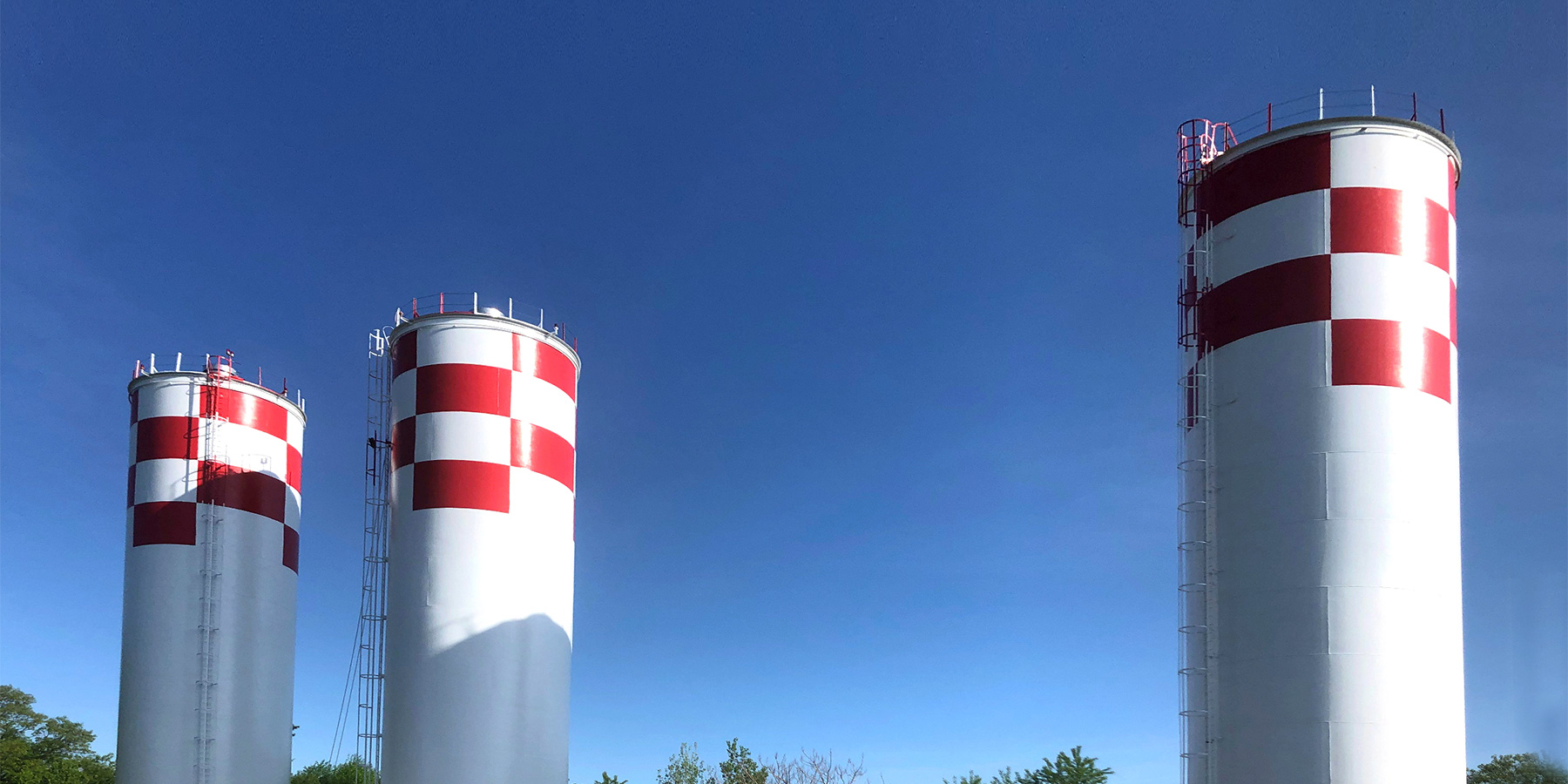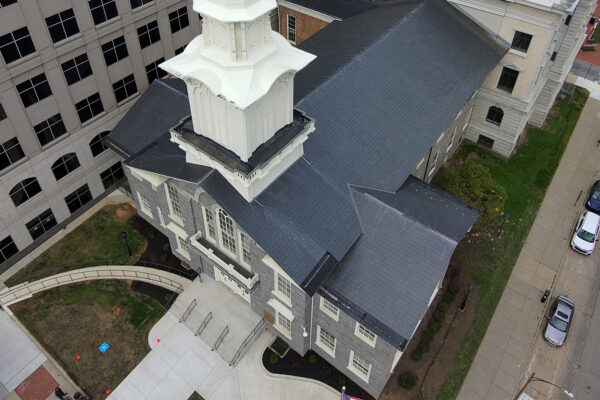Water Tower Rehabilitation Improves Water Quality, Saves Money

SELINSGROVE, PA — Water quality and supply operations were greatly improved at a large care facility in Selinsgrove, Pennsylvania, thanks to crucial infrastructure improvements.
Built nearly 80 years ago, four water towers at the Selinsgrove Center were deteriorating with major structural steel deficiencies, tank leaks and water loss. The Center, a state-owned intermediate care facility for individuals with disabilities, serves more than 1,000 residents and employees, with a maximum capacity of more than 2,000.
The Pennsylvania Department of General Services (PADGS) needed to repair the leaking towers and bring water quality at the facility into compliance with the federal Safe Drinking Water Act requirements.
Benesch led the design for the $2 million project to rehabilitate three of the towers and demolish the fourth. During the initial stages of construction, the three towers slated for rehabilitation were drained and inspected. Those inspections revealed massive weld failures in the original tank floors as well as steel deflection issues, which compromised the floors, and required significantly more repair work than previously anticipated.
Improvements included the replacement of all three tank floors; interior and exterior painting; installation of a passive mixing system to keep the water fresh and reduce ice buildup in the winter; safety features, such as safety climbing devices, railings on the roof and additional, larger hatches; and more. Water towers were also rehabilitated one at a time to maintain water supply to the Center.
Rehabilitating the towers instead of replacing them saved the PADGS an estimated one million dollars and extended the life of the structures by another 50 years. Water quality was also drastically improved, bringing the facility into Safe Drinking Water Act compliance.










